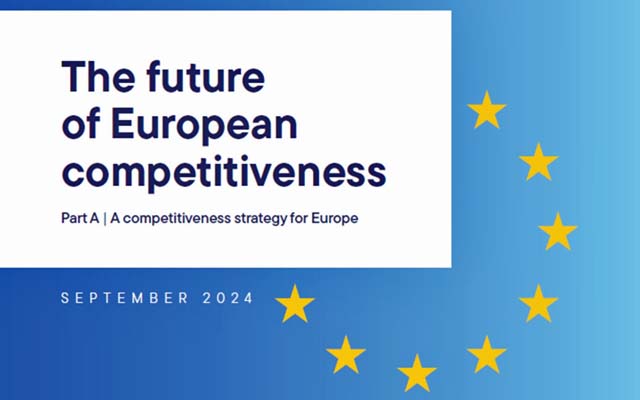Sea-LNG, the industry coalition aiming to accelerate the widespread adoption of the LNG pathway to zero-emission shipping, welcomes the findings of the European Union’s Draghi Report.
Sea-LNG urges EU policymakers to adopt a pragmatic approach to decarbonisation that supports the competitiveness of the maritime sector and promotes investment in alternative fuels like LNG, biomethane and e-methane.
The Draghi Report highlights the critical role of the Single Market in driving Europe’s industrial strategy and the need to address high energy costs that impede growth and investment, particularly in energy-intensive industries and transport sectors like maritime. Sea-LNG echoes these concerns and emphasises the importance of a technology-neutral approach to decarbonisation regulations that recognises the immediate greenhouse gas (GHG) emissions reduction benefits and investment opportunities presented by LNG.
Peter Keller, Chairman Sea-LNG, said: “The Draghi Report underscores the challenges faced by ‘hard-to-abate’ sectors like maritime in achieving decarbonisation targets. LNG offers a proven, commercially viable pathway to significantly reduce GHG emissions from shipping today, as well as a platform for the uptake of biomethane (Bio-LNG) and e-methane (renewable synthetic LNG) in the future using existing EU gas infrastructure. It also removes local air pollutants from marine engines improving air quality and human health, supporting these EU policy areas too.”
Sea-LNG has issued its support for the report’s call for greater public support and financing for decarbonisation efforts in energy-intensive industries and the transport sector. The coalition advocates for the maritime portion of EU ETS revenues to be earmarked for investments in innovative assets, processes, and skills that enhance the maritime sector’s decarbonisation, such as LNG bunkering infrastructure and biomethane/e-methane production facilities.
Moreover, Sea-LNG agrees with the report’s emphasis on the need for a level playing field for EU industries and transport operators during the transition. In line with the report’s recommendations, Sea-LNG calls for a unified approach to transport planning at the EU and national levels, focused on harmonisation, interoperability, and competitiveness. This approach should facilitate the integration of the maritime sector with adjacent network industries, such as energy and logistics, and foster innovation in decarbonisation technologies.
Sea-LNG looks forward to collaborating with EU policymakers and industry stakeholders to advance the maritime sector’s decarbonisation agenda and promote the adoption of LNG as a sustainable marine fuel. In its latest report titled Decarbonising Shipping: Fuelling the Net Zero Transition through the Liquefied Methane Pathway, Sea-LNG highlights how EU laws can support the widespread adoption of liquefied methane vessels and infrastructure to decarbonise shipping.
Image: Draghi report (source: Sea-LNG)



